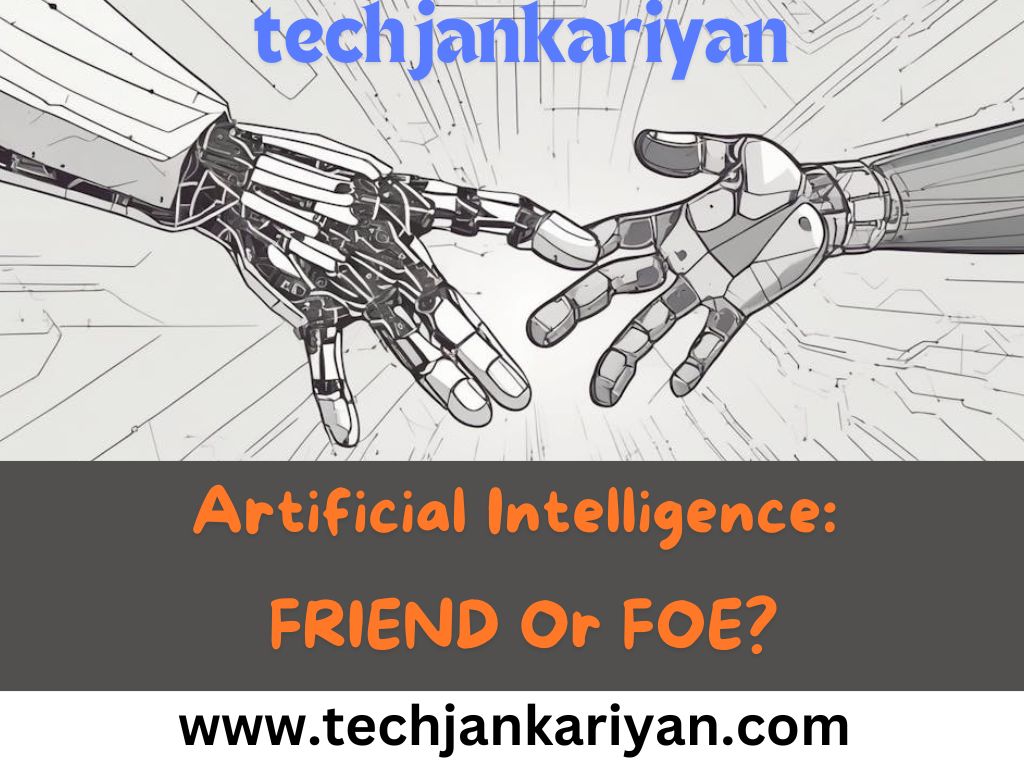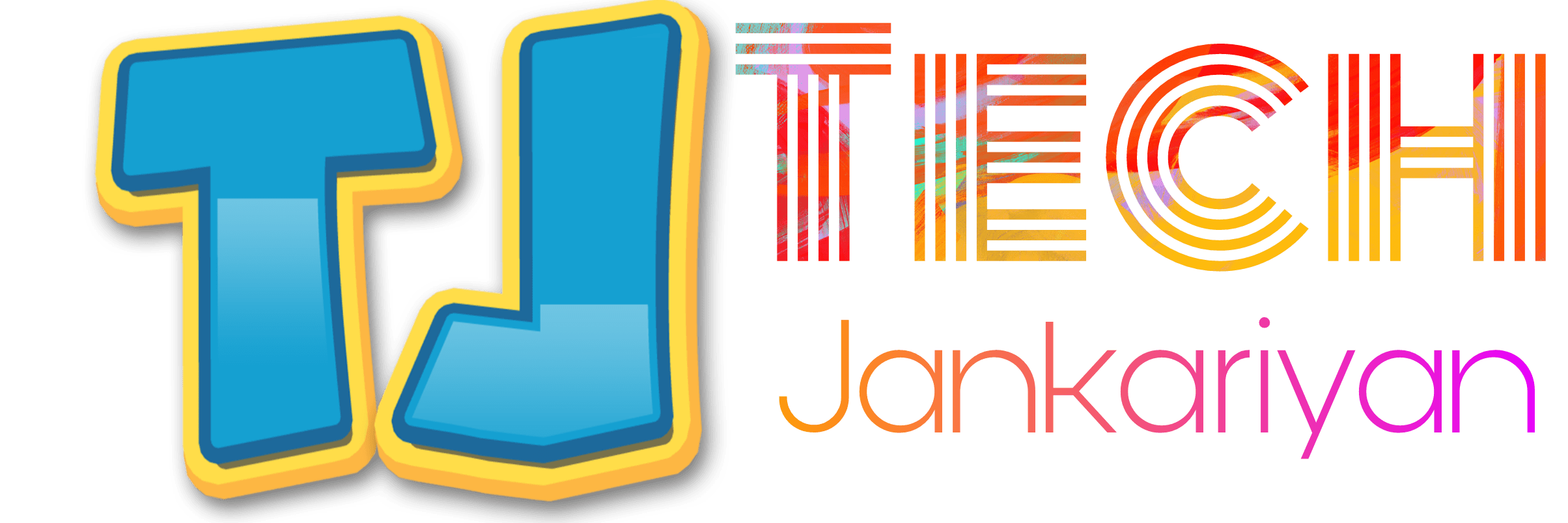Artificial Intelligence (AI) is everywhere these days. From cool robots in movies to self-driving cars, chatbots to human assistants, AI is rapidly changing our world. But what exactly is AI, and how does it work? More importantly, is AI a friend or foe? Let’s explore the main ideas behind AI, its benefits, and the potential problems we need to consider.

What is Artificial Intelligence (AI)?
Artificial Intelligence is a branch of computer science focused on creating smart machines that can think like people. These machines can learn, solve problems, and make decisions.
AI isn’t just about following instructions. It’s about machines getting better and making smart choices based on new information. This capability is what sets AI apart from traditional computer programs.
How Artificial Intelligence (AI) Works
There are many ways to create AI, but one important method is called machine learning. Here’s a simple breakdown of how it works:
- We give a lot of data to the AI system (text, pictures, code, etc.)
- The AI system studies this data carefully, finding patterns and connections
- The system creates a set of rules or models based on the patterns it found
- With this new knowledge, the AI can make predictions or decisions about new data it’s never seen before
Think about a child learning the difference between cats and dogs. After seeing thousands of pictures and being told which is which, the child eventually gets to a point where they can look at a new picture and say, “That’s a cat!” This simple example shows what machine learning is all about: learning from information and using that knowledge in new situations.
Benefits and Applications of AI
AI is changing many industries and affecting the way we live, work, and connect with the world around us. Let’s look at some specific areas where AI is making a big impact:
AI in Healthcare
In the medical field, AI systems are analyzing scans more accurately than ever before. This can help doctors find problems earlier, potentially saving lives. AI can also assist in:
- Predicting patient outcomes
- Developing personalized treatment plans
- Improving drug discovery processes
AI in Finance
The financial industry is using AI to make things faster and more secure. Some applications include:
- Spotting fraud more effectively
- Providing personalized investment advice
- Automating trading strategies
- Improving customer service through chatbots
AI in Daily Life
Beyond specific industries, AI is making our daily lives easier in many ways:
- Recommendation systems on streaming services and online stores use AI to suggest things you might like based on your previous choices
- AI-powered virtual assistants like Siri and Alexa can answer questions, manage your schedule, and control smart home devices
- Navigation apps use AI to predict traffic patterns and suggest the fastest routes
Concerns and Challenges of AI
While the potential of AI is huge, it’s important to acknowledge the possible problems that need careful consideration.
Job Automation and Potential Job Loss
As AI systems improve, they could start doing jobs that people do now. This raises an important question: are we ready for the possibility of many people losing their jobs?
My opinion? AI isn’t here to take jobs, but to assist people in doing theirs. However, it’s crucial to prepare for changes in the job market:
- Those with fewer or simpler skills should consider upgrading to remain competitive
- Continuous learning and staying up to date with technology can help ensure job security
- New jobs will likely be created as AI technology advances, requiring different skill sets
AI Bias and Ethical Considerations
Another significant concern with AI is bias. AI systems learn from the data they’re given. If this data has biases, the AI itself will also be biased in its decisions.
For example, if an AI system used in the justice system is trained on data that reflects racial biases in past sentencing, it might recommend harsher penalties for people of color more often. This highlights the importance of addressing and reducing these biases before they become embedded in AI systems.
Responsible AI Development
To address these concerns, we need to prioritize responsible AI development. This includes:
- Creating strong ethical guidelines for AI development and use
- Implementing safeguards to reduce biases in AI systems
- Ensuring transparency in AI decision-making processes
- Promoting diversity in AI development teams to bring in different perspectives
The Future of AI: Friend or Foe?
AI is still new, but it’s developing very quickly. Predicting exactly how this technology will change things is difficult. However, one thing is certain: AI has the potential to revolutionize our world.
The question of whether AI is a friend or foe is still open. The answer depends on how we choose to develop and use this powerful tool. Here are some key points to consider:
- AI could solve complex problems in fields like climate change, disease prevention, and space exploration
- It might lead to new forms of creativity and innovation we can’t yet imagine
- There’s potential for AI to enhance human capabilities rather than replace them
- Careful regulation and ethical guidelines will be necessary to prevent misuse
As we move forward, it’s crucial to have open discussions about the impact of AI on society. We need to balance the benefits with the potential risks and ensure that AI technology is used to improve life for everyone.
What are your thoughts on AI and its potential impact on our future? Do you see it more as a friend or a foe? Share your ideas in the comments below and let’s keep this important conversation going.
FAQ (Frequently Asked Questions)
What is the difference between AI and machine learning?
AI is a broader concept of machines being able to carry out tasks in a way that we would consider “smart”. Machine learning is a specific subset of AI that focuses on the ability of machines to receive data and learn for themselves, without being explicitly programmed.
Can AI become self-aware?
This is a complex philosophical question that scientists and researchers are still debating. Currently, AI systems are not self-aware in the way humans are. They can perform tasks and make decisions based on their programming and learning, but they don’t have consciousness or emotions.
Will AI take over all jobs in the future?
While AI will likely automate many tasks, it’s unlikely to take over all jobs. Instead, it’s more likely to change the nature of work, creating new job opportunities while eliminating others. The key is to adapt and develop skills that complement AI rather than compete with it.
How can we ensure AI is developed ethically?
Ethical AI development requires a multi-faceted approach, including diverse development teams, transparent algorithms, rigorous testing for biases, and strong regulatory frameworks. It also involves ongoing dialogue between technologists, ethicists, policymakers, and the public.
What are some everyday examples of AI that we might not realize?
AI is present in many everyday technologies, including spam filters in email, voice-to-text features on smartphones, social media algorithms that determine what content to show you, and even some features in modern cars like automatic braking systems.



